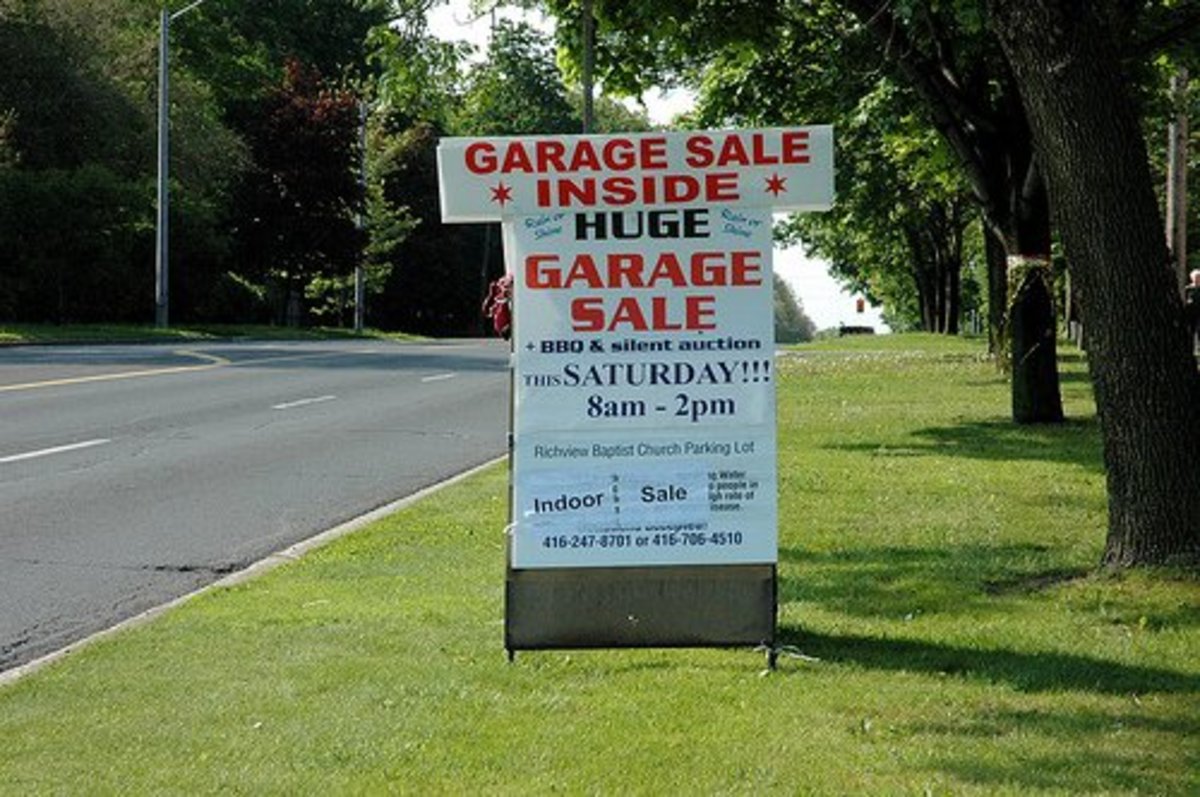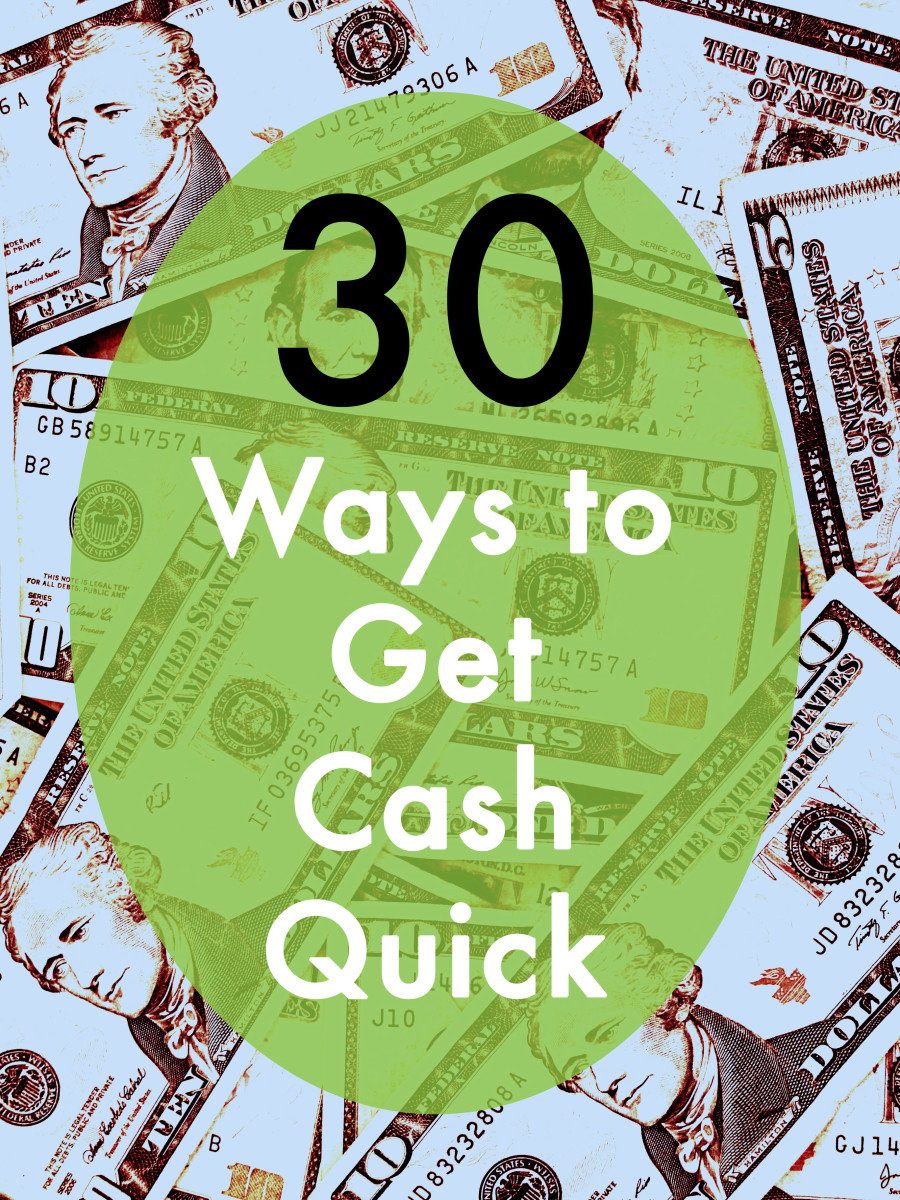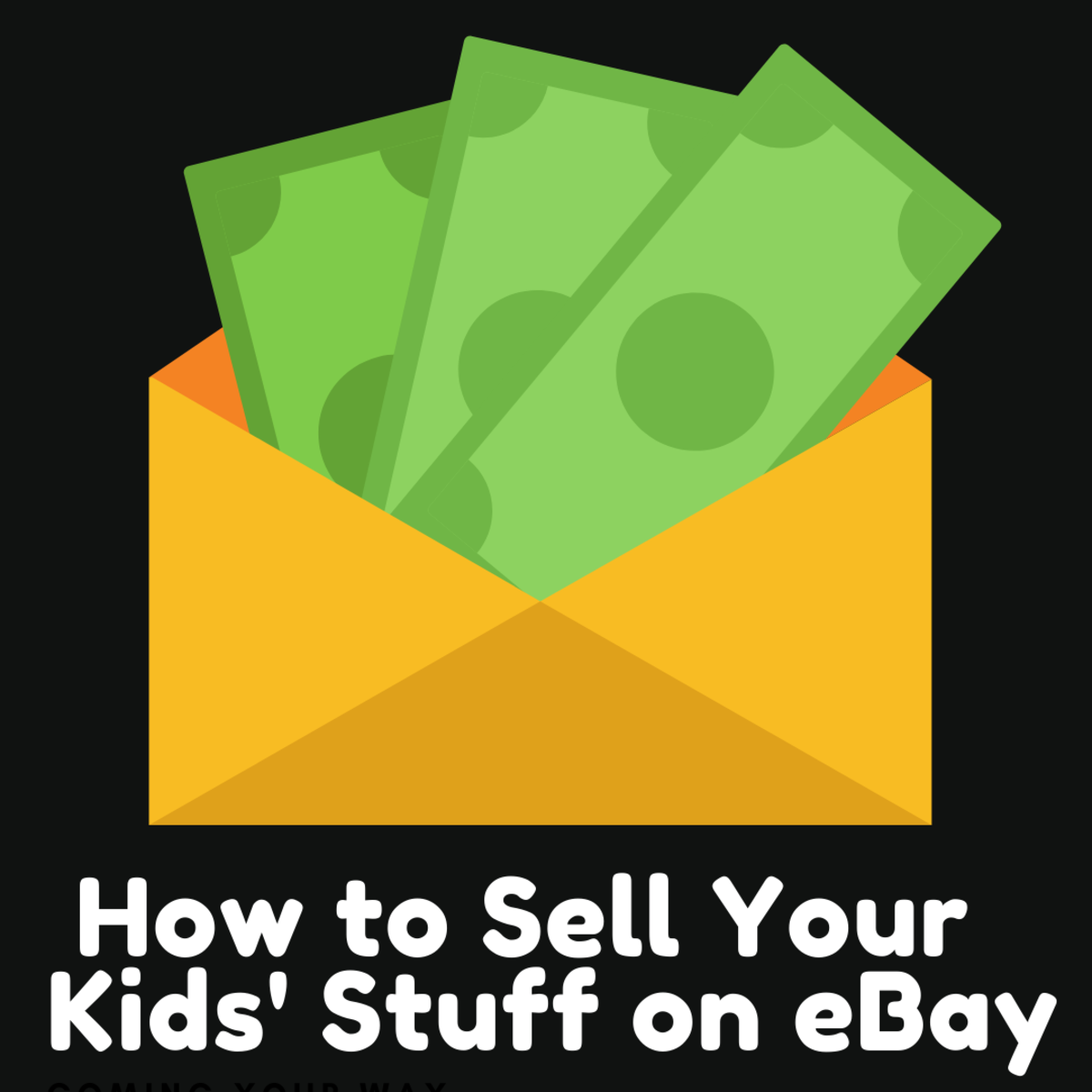Consignment Shops: Turn Your Clutter Into Cash the Easy Way!
Ways to Get Money for Your Stuff
Let's say you have a bunch of stuff you don't want any more- most people do.
What is junk to you is probably something that someone else wants and would even pay for, but how can you get money for your clutter?
It turns out that there are a lot of ways to get money for your stuff, but most require some effort. In this article, you will learn about the most popular ways to sell your stuff. I'll save the easiest way for last.
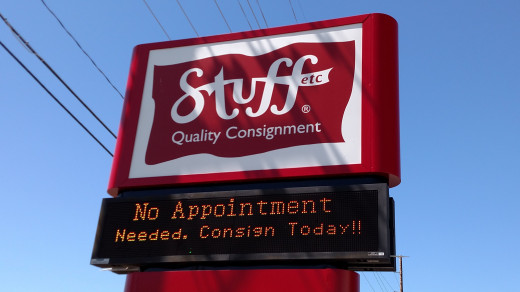
Garage Sales- A Lot of Work!
The old fashioned method to get rid of junk and get some money is to have a garage sale. Garage sales are still popular and are not only a great way to get rid of stuff, but a great way to find stuff you can use for almost nothing.
There is one problem with having a garage sale to get rid of stuff- it is a lot of work!
You'll need to clear a space in your garage and sort your items so it is clear what is for sale and what is not. You'll need to put price tags on your items, or at least figure out how much you want to charge. Oh, and you'll need to advertise your garage sale and put up signs.
We're not done yet. You'll probably want to get some small bills and coins to keep on hand to make change for people who pay with cash. You'll need to decide whether to accept checks- I wouldn't recommend it. And you'll need to sit in your garage or driveway all day during your sale.
How else can you get money for your stuff if you don't want to put this much effort into it?
Craigslist Selling- Hard Work If You Have Lots of Items
Craigslist is a free service on the internet where you can list items for sale and even post photos. If you remember the bad old days where you had to pay for a classified ad in the newspaper to sell something, you can appreciate how great it is to have a free system like craigslist available.
If you are selling one or two items, craigslist isn't too much work. You'll need to type up a description of each item and post a few photos. Then you'll need to respond to inquiries by email and arrange to meet the buyer to close the deal.
If you have a house full of clutter, it would take a monumental amount of work to list all of these items for sale and go through all of the work to get everything sold. You would likely sell your best items and be left with lots of junk that no one wants to buy after putting in a lot of work to list all of these items for sale.
There must be an easier way to sell your junk...
eBay- Even More Work Than Craigslist!
Selling your clutter on eBay has similar issues to selling on craigslist. You need to list all of your items, hold auctions, and now for the worst part- you need to pack and ship each item.
If you don't describe your items perfectly, and if you cut corners on packing or shipping your items, you can get negative feedback from your eBay buyers, making it harder to sell other items on eBay.
I have sold a number of things on eBay, and I think packing and shipping is the hardest part. Sure, you could let a pack and ship company do this for you, but this really eats into your profit.
If you have collectible items, selling on eBay can be worth the trouble. But if you just have a lot of general clutter to get rid of, there is an easier way.
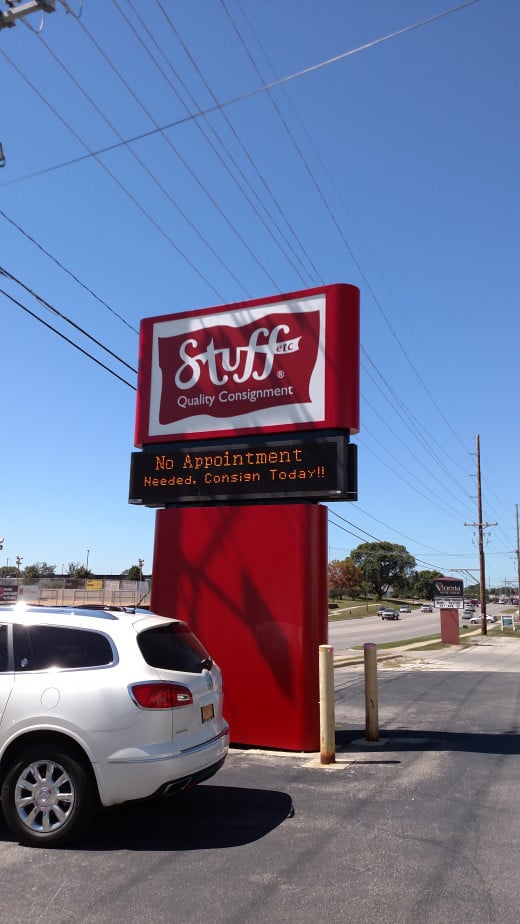
Consignment Shops- The Easiest Way to Get Cash for Clutter!
I saved the easiest way to get money for your stuff for last. Just put the stuff in your car, drop it off at the consignment shop, and stop back in a few months to pick up your money.
You may have noticed the part about waiting a few months to get your money. This is the major downside of selling at a consignment shop. You don't get paid until after your items sell. The store will start selling at full price, and then go through a few price drops until your items sell. This takes time.
Another price of the convenience of selling at a consignment shop is that you'll get less money. The shop typically takes 40% to 60% of the selling price of each item.
But getting rid of your junk right now is worth something. Plus, dropping your stuff off at a consignment shop is the easiest way to get at least some money for it.
Steps to Get Cash for Your Stuff at a Consignment Shop
Step 1: Select items to sell at the consignment shop
You can probably throw away some of your items that are not in good condition, but a consignment store will likely sell almost any type of useful item you have including tools, used clothes, exercise equipment, decorations, kitchen appliances, furniture, pet accessories, sporting goods, collectibles and more.
Step 2: Sign up for an account
When selling at a consignment shop for the first time, you'll need to set up an account. You may need to show a driver's license or ID to verify your identity and provide your address and phone number. This process takes only a few minutes and you'll be all set to sell stuff for years.
Step 3: Drop off your items
Some consignment stores require you to make an appointment or may limit how much stuff you can bring in on a single trip. Give the consignment shop a call to check before you load all of your things and head out.
Some shops request that you bring someone along to help you move furniture.
At my favorite shop, you can choose to take back any items that are not accepted, or allow them to be donated to Goodwill. I usually choose to donate any unacceptable items to Goodwill so I don't have to wait for the items to be sorted.
If your have more than one consignment shop in your area, you can try to take unaccepted items from one shop to another one- depending on inventory status, you may be able to sell some unaccepted items at another store.
Step 4: Pick up your cash!
As your items sell, your account will be credited and you will be able to pick up money at the store. I usually wait until I am in the area anyway and stop in to check my balance. I can usually pick up enough cash for lunch, and sometimes a lot more!
What Is Your Favorite Way To Sell Your Clutter?
Check out my blog Penny Pincher Journal for more tips on selling your items to make money.
Pros and Cons of Consignment Shop Selling
Selling at a consignment shop is probably the easiest way to get money for your unwanted stuff. Just drop it off and pick up your money later.
This convenience comes with some costs: you don't get your money right away, and you won't get top dollar for your items since the consignment shop gets a cut of the sale price.
All things considered, selling at a consignment shop is a good way to quickly clear out clutter and get at least some money for things you don't want anymore. I have sold a lot of items at consignments shops, primarily items that are not valuable enough to spend time advertising and selling them individually through more labor intensive methods.
If you have never sold at a consignment shop, give it a try next time you want to declutter and get some cash!
© 2015 Dr Penny Pincher



